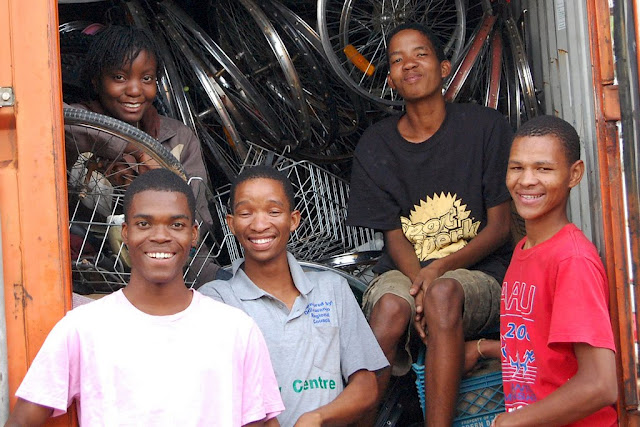In many post-conflict societies throughout the world, young people must deal with poverty, exploitation, and neglect. It is perhaps not surprising then that many youth eventually find themselves embroiled in violence, either as perpetrators or victims of crime. However, often overlooked are young people’s current and potential future contributions to peace, since with the proper support, youth can prove instrumental in a society’s rebuilding process.
In her new book Youth in Post-Conflict Reconstruction: Agents of Change, Stephanie Schwarz examines the intersections between youth, war, and peace. These linkages were examined at a book launch and panel discussion held last week at the U.S. Institute of Peace.
According to Schwarz, youth are often ignored despite their potentially strong influence on society. Traditionally, children and adults—easier age cohorts to define—dominate the focus of aid programs and government outreach efforts in nations recovering from war, she said.
Yet in post-conflict environments, youth are highly vulnerable, since they often comprise a large portion of society, but have few opportunities available to lead a peaceful life. Schwarz broadly defines youth to encompass those that should be targeted in order to improve the prospects for a successful post-war reconstruction process.
Schwarz challenged those that link “youth bulge” with instability, describing the concept as an “exaggerated youth theory.” She asserted that youth can play either negative or positive roles in post-conflict societies, but specifically emphasized young people’s positive contributions as community leaders, with their ability to raise a “coordinated political voice…through spontaneous motivation.”
Communities and governments need to support young people engaged in these positive roles, Schwarz added. Otherwise, youth could become a “resource for perpetuation of violence,” she warned, especially if they become apathetic toward the reconstruction process, or are recruited as child soldiers. Schwarz advised that young people need empowerment programs to “provide skills to be productive in [their] community,” as well as to boost their sense of belonging.
Marc Sommers, also with the U.S. Institute of Peace, described obstacles that youth programs currently face in post-conflict societies. He pointed out that although post-war populations are often “youth dominated,” many young people are disengaged from programs linked to reconstruction efforts, which he said exacerbates the feeling of exclusion. In turn, he said, it becomes difficult for youth to reintegrate themselves into their communities, increasing the likelihood that they fall victim to child-soldier recruiters, or become drawn into other negative roles.
Lessons From Kenya: Integrate Young People to Avoid Conflict
In an interview, Margaret Muthee, a scholar with the Wilson Center’s Africa Program, used her personal observations and experiences from Kenya to shed some light on the obstacles young people often face in the developing world. She emphasized that while “youth are very resilient with lots of potential,” they often find themselves in a “disadvantaged position.”
In Kenya, Muthee said, youth suffer from a vicious cycle, where a lack of educational or economic opportunity places young people—especially men—on a slippery slope toward crime and violence. In turn, she explained, “male youth are vilified” and sometimes dealt with through government-supported “shoot to kill…[measures] designed to instill fear rather than reintegrate them into society.”
Muthee recommended countering the top-down approach of dealing with youth, asserting that with the right approach and improved support from government and civil society, peaceful paths can be developed for young people, which would help achieve a greater sense of security for entire communities.
Marie Hokenson is a cadet at the United States Military Academy at West Point and an intern with the Woodrow Wilson Center’s Environmental Change and Security Program.
Photo Credit: “Joy Centre – BEC,” used courtesy of flickr user Ben Namibia.

 A Publication of the Stimson Center.
A Publication of the Stimson Center.



